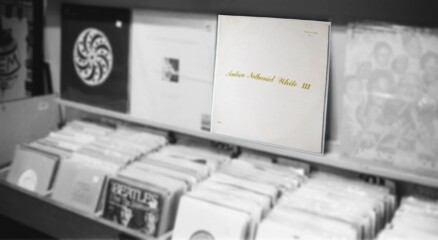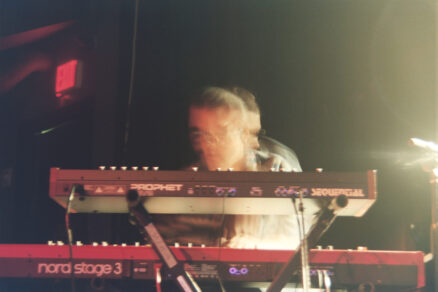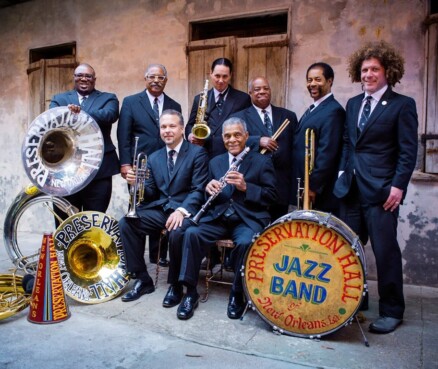Cecily taps the healing power of joy on ‘Awakening Pt. II’
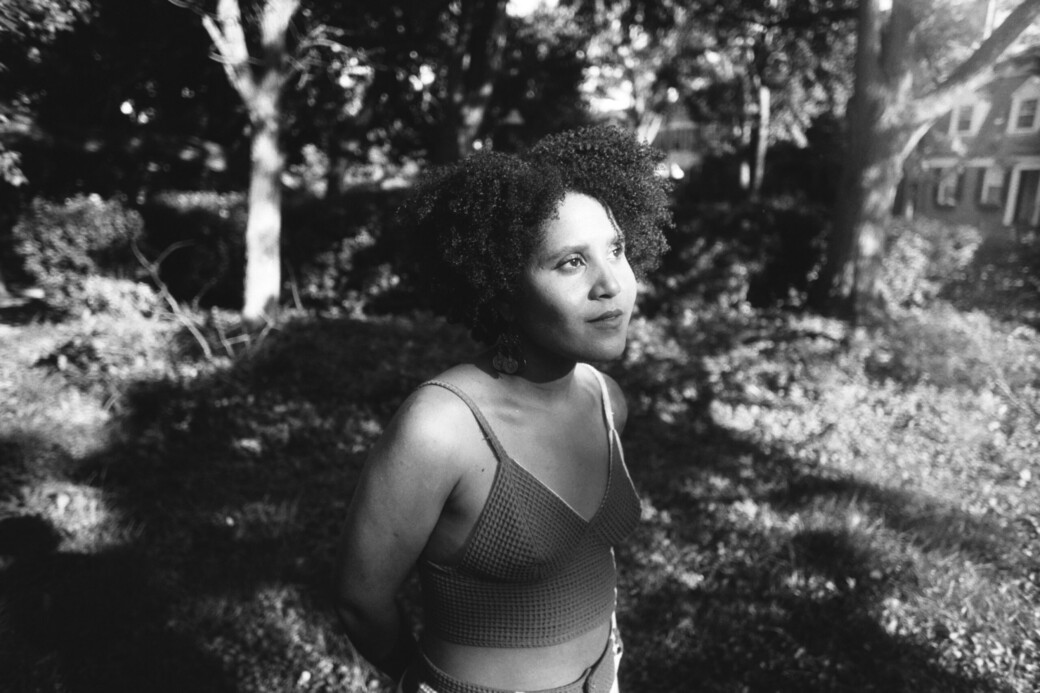
According to the late Black feminist scholar bell hooks, love is a verb — an action we choose every day. But whereas so much of our cultural programming limits our thinking about love to the context of sex and romance, hooks goes beyond that. In her seminal text All About Love, she characterizes love as a catalytic force for spiritual renewal.
“All awakening to love is spiritual awakening,” hooks writes. This line in particular provided inspiration for D.C.-based singer-songwriter Cecily‘s latest album, Awakening Pt. II. The record – released this past July, five years after Awakening Pt. 1 – explores unconditional love in its full breadth: communally, spiritually and beyond. Musically, Awakening Pt. II weaves a classic R&B sound with soulful influences, made lush with ornate instrumental work.
Ahead of her performance at this weekend’s Rosslyn Jazz Fest, CapitalBop spoke with Cecily about the album, her musical influences, and all the lessons she’s learned in and about love.
CapitalBop: Tell me a little bit about your first album, Awakening Pt. 1. Why was it titled that way?
Cecily: That album came out in 2019, [and] from 2016 to 2018, I was reading a lot of books about unconditional love. I had just gotten married in that timeframe. I just felt like people assume love is something you know how to do. But I happened to pick up this book one day from Kramer’s bookstore up on Connecticut Avenue. It was called How to Love by Thich Nhat Hanh. I picked it up and I bought it, and it’s like a little pocket-sized book. And I just read it here and there, because it’s like little vignettes. You can open up to any page and read it. And I ended up reading it back to front, three different times, because it was just so powerful to me. It was honestly a life-changing book in a lot of ways, so much so that I started giving away copies to friends.
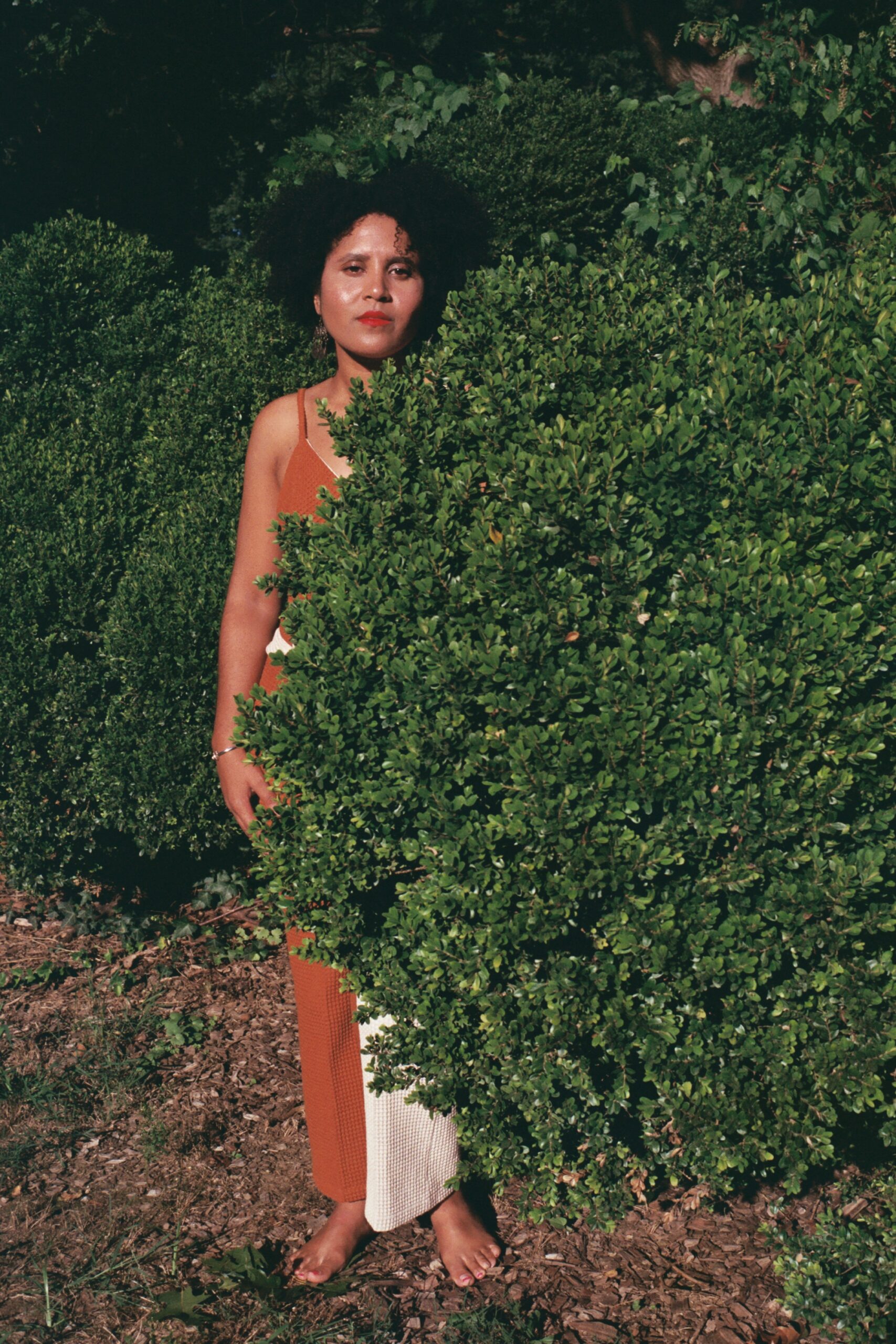
After that, I read a book called The Mastery of Love by Don Miguel Ruiz, and that was also life changing. Then that led me to All About Love by bell hooks. And it was in the process of reading these books that I realized, okay, I want to make a project based on the life changing things that I’m learning here because as a jazz singer (also soul and R&B), I feel like a lot about what you learn about love, especially as a Black woman in the US, comes from music. And I was like, How can I teach people something in the music that is revolutionary or enlightening in some way, but doesn’t feel like you’re being taught something, you know? That was kind of the genesis of the project. And when I started trying to write these songs based on these texts, I realized that one project wasn’t going to be enough. And so that’s when I decided, Okay, I’m going to do a Part 1 and a Part 2. Part One was really pulling from the Thich Nhat Hanh book, and then also pulling from Don Miguel Ruiz.
Part 2, which just came out in July, is pulling all from All About Love by bell hooks. And the name of the project, Awakening … I have, like, 20 different album titles written down. And I ended up sticking with Awakening because there’s a quote in the bell hooks book where she says, “All spiritual awakening is an awakening to love.” And what I’m trying to do would be awakening, because it’s an exploration of unconditional love, which is an awakening to love, a spiritual awakening. That’s what the name of the album means.
CB: How does this album continue the conversation in Awakening Pt. 1? What have you learned in the process of bridging those two pieces of literature together for this work?
C: In the Thich Nhat Hanh book, he’s talking a lot about self love, a good amount about romantic love, and community-building. And there’s a lot of really beautiful, enlightening things he says around how you take care of yourself and how that translates into taking care of a romantic partner, or creating a safe space for people. When I read the bell hooks book, it felt like she was building on that in a lot of ways, like when she talks about creating a love ethic. How do we go from, Okay, I’ve created a space of unconditional love for myself, which is revolutionary within itself, but how does that expand to everything else? Like, how does that expand to not only the way that I treat my romantic partner, but the way that I treat my children, how I show them love, how I speak to them, how I treat them physically? How does that expand to the way that we treat the earth and Mother Nature? Is it exploitative or is it based in love? How does that expand to how we build our society?
And extending that to our connections to spirit, hooks talks about divine love. How does the source or God or ancestors or however you want to think about it, how does that divine love pour into our lives? That was the way that I saw the progression of the ideas of this project, like growing from the self, growing from the romantic, and going into every other place of our lives, place in our society. On the album Part 2, I talk about the importance of community or just needing the love of someone else, like in my song “A Flower in Winter” about being healed by community. I talk about, you know, our connection to the earth and how it’s connected to how we treat each other in the song “Domination.” I’m just trying to pull a little bit from the different chapters of All About Love and connect them to my own stories in different ways.
CB: I’ve read the book myself and it was personally revolutionary for me, too. And I took away this lesson about being unselfish with how I love, and taking the love that I have and spreading it around into my entire life. So I’m wondering if the book had similar effects on your life or this work in particular.
C: I feel like I’m always finding ways that those lessons are making themselves apparent in my everyday life. I think what you said about being unselfish is really central. I was thinking about that today. I was listening to a conversation on Instagram Live with Adrienne Maree Brown and Linda Sarsour. Basically they were talking about how we show up in this election period as people who are grounded in our desire for a free Palestine and also continue to build community and push these structures to change in revolutionary ways.
And I think what really was moving to me was that everything we do has to be grounded in love, right? It’s not grounded in revenge or hate or ego or “I’m better than you.” It has to be grounded in love because that’s how you build coalitions, and that’s how you create things that actually last. And I think that’s one thing I took away from the bell hooks text, that unconditional love is not something that we get to put conditions on. That has to be something that bleeds into every single part of our lives and the way that we approach everything we do, and that is a large task that’s not an easy thing to ask of oneself in a lot of ways. It takes a lot of awareness and intentionality. But I’m happy that there’s other people in the world I can look to who are already trying to do that in their communities and their own lives, and so it serves as inspiration to keep going from there.
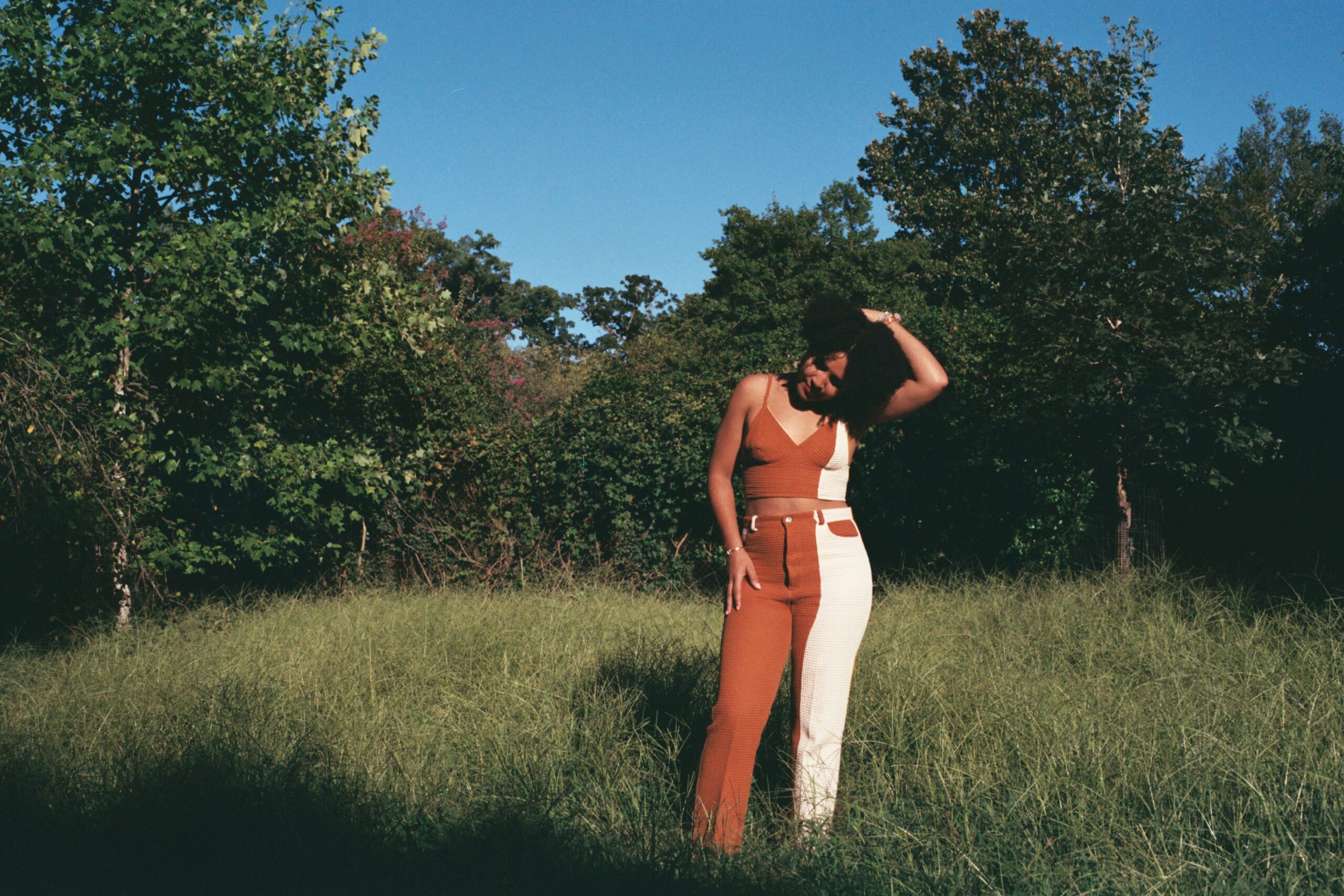
CB: Would you say that that’s your approach to having a love ethic?
C: Yeah, that is my approach to having a love ethic. I have chosen not to hate anyone. That’s just a decision that I’ve made, because it’s too much – energetically – for me to hate anyone. I can hold people accountable. I can decide that people aren’t worthy of my energy or my space, that I love myself too much to be around certain people, but that doesn’t mean I hate them. I can only send them love. I can only send them prayers and wishes for further growth and enlightenment. Because I want everyone to expand, I want everyone to find a deep, abiding self love and connection to spirit because that shifts everything. So, yeah, that’s kind of my idea of a love ethic.
CB: How has this approach influenced your creative process outside of just the music?
C: My creative process for this particular album – a lot of the songs started as poems. “I Am Love” started as a poem; “A Flower In Winter” started as a poem; “Love Allows” started as a poem. I was just going through this period where I was reading a lot and I was writing, and I was reading and I was writing, and sometimes the purpose wasn’t even to write songs. I just wanted to get thoughts out and write things that were expansive to me at the moment.
A lot of times, my creative process will start with rereading my journal entries, getting ideas, starting to process things and pull things out. This project started by rereading some of my journals and also rereading some parts of the different texts and then growing from there. And then I have a lot of co-writers on this project. I just reached out to some who I haven’t worked with before, and we were able to create beautiful music together. So that’s always wonderful. Like Allyn Johnson, an amazing DC-based piano player and educator. Muhsinah, who’s a Black woman creative, also from DC, who I did “Spirit Tell Me” with, as well as Jenna Camille, another Black woman creative based out of this area, who did “‘Cause I Love You,” which also started as a poem.
So it really was a collaborative process where I would come up with a concept, or I come and say, Hey, I have these words, I have this melody and these lyrics, and let’s try to build something around it. So that was how the process went the majority of the time.
CB: Can we talk a little bit about your musical influences, too? When I was listening to the album, I was reminded a lot of Jill Scott and Cleo Sol. It made me wonder who you learn a lot from, sonically.
C: For me, it’s funny. I just spent the last 30 minutes listening to Chaka Khan, watching live performances on YouTube. So I’ve been influenced by a lot of 70s soul music. That’s my favorite music; anything that came out between 1974 and 1977, I usually love it. I love Gil Scott-Heron, I love Terry Callier, who is a name I feel like I don’t hear about enough, but he’s made one of my very favorite albums of all time.
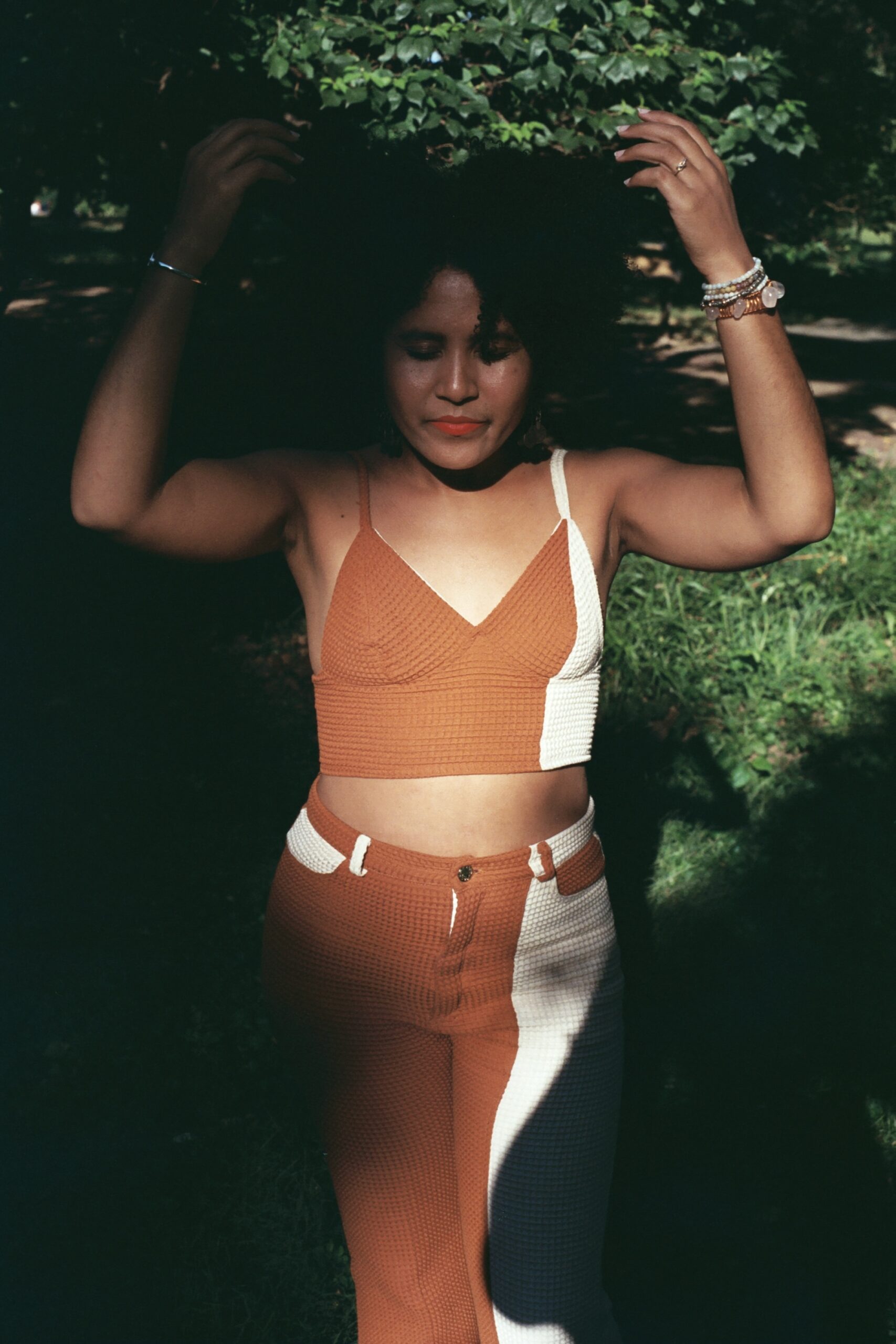
I have a lot of older brothers and sisters, and my parents had me when they were a little older. Nowadays that would be normal, but in the 90s, they were older to be having a kid. So I grew up listening to my parents’ music, my sisters’ and brothers’ music. That included all the 70s soul stuff I mentioned. And then my mom loved Motown, my dad loved a lot of jazz: in particular, Miles Davis and John Coltrane and Ahmad Jamal. And I love Anita Baker.
I think I’m listening to many people, but I’ll just say the main thing is the ‘70s artists. That’s what I always pull from sonically: the textures, the arrangements, the instrument choices. That’s what I find myself going back to the most.
CB: Can you explain the connection between your musical influences and the thematic elements of this album? I’m wondering specifically what you believe R&B can reveal about divine love, or love in all its forms, because so much of R&B is rooted in romantic and sensual love, but with this album, you’re taking more of a holistic approach.
C: I love that question. I think there are a lot of artists that I look up to that have done that. I think about Minnie Riperton and her song “The Edge of a Dream,” where she’s challenging us to keep imagining the beauty that the world could be. And I think that is a very important thing that as artists, we can do. I’m not going to say we should do it, because that’s up to each individual to decide what they need to do. But I think as artists, part of what we can do, and part of what I’ve chosen to do, is to help with the imagining, help us imagine the world that we want.
We can’t only focus on what we don’t want. We have to focus on what we want so that we can create it. Stevie Wonder created so much beautiful music. Think about the song “As,” just reminding us that we’re in the cycle of life and the center of it is love. I think about artists like Frankie Beverly and Maze, I think about songs like “Joy and Pain” and “Happy Feelin’s,” just that reminder that it’s all in alignment. “Joy and pain are like sunshine and rain,” like they’re two sides of the same thing, and the source of them both is love. I perform that song a lot because I love it so much. And one of the lines [of “Happy Feelin’s”] is, “I’ve seen the light. I’ve watched it shine down on me.” He’s talking about finding love there.
When I listen to the radio now, I hear a lot of pain. That’s people’s reality, and they can speak about what they know, what they need to speak about. I think for me, I don’t hear the balance; I don’t hear people talking about the joy enough. And so with my music, I try to offer the joy. Not every song is upbeat and happy necessarily, but I try to always have the hope in there, because I just think that music can do that. It can give us that.
cecily, DC, DC jazz, jazz, Washington


